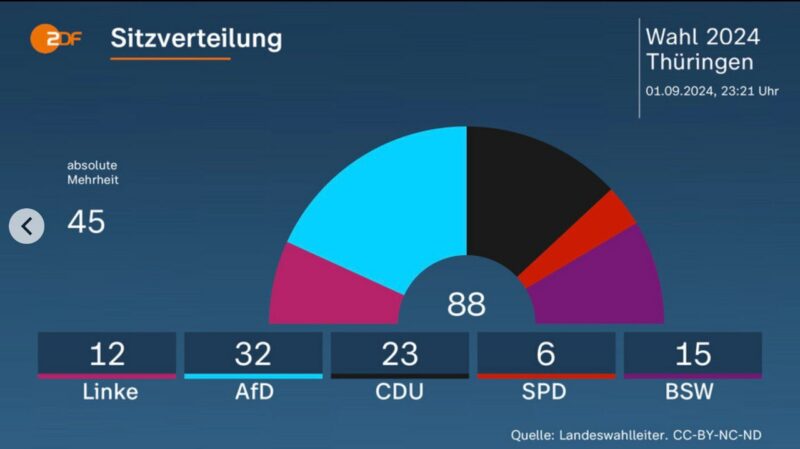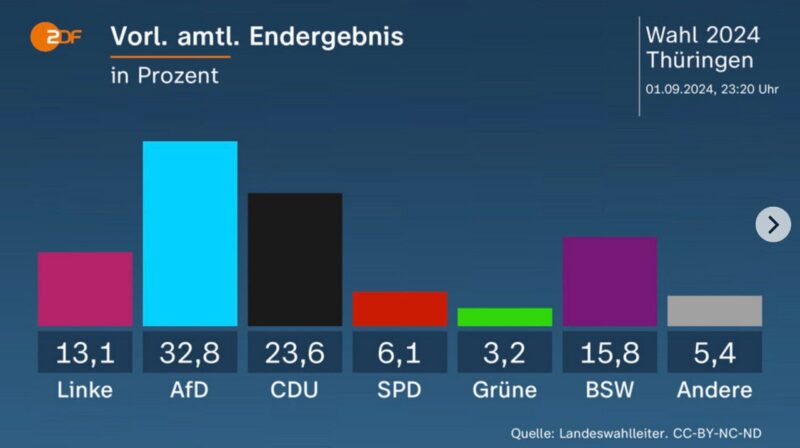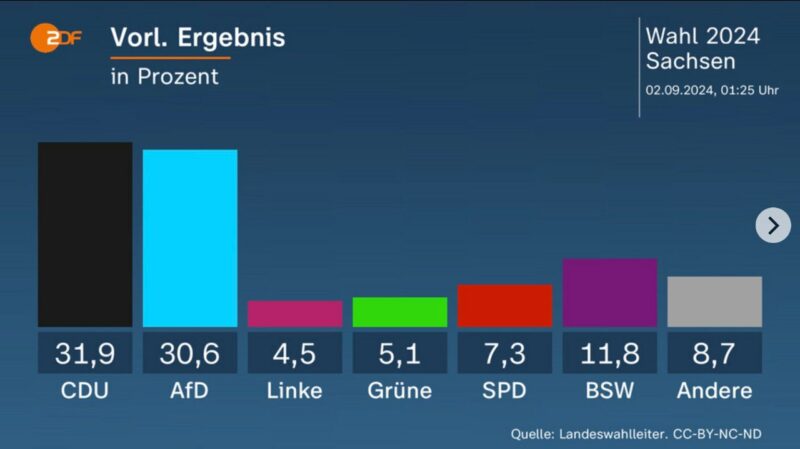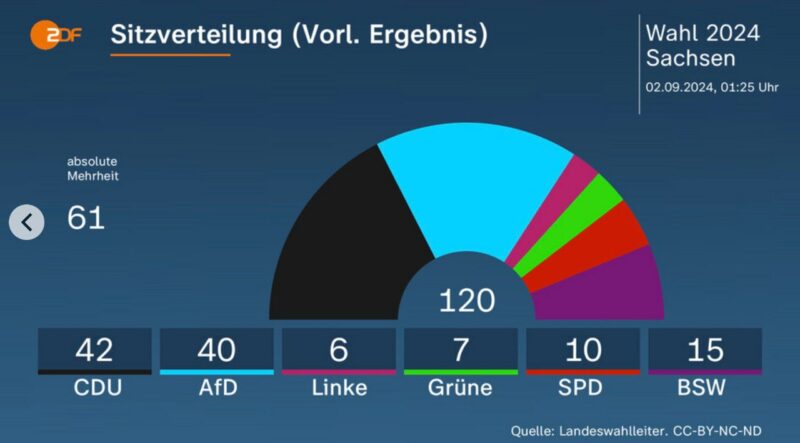On September 1st, the German states of Saxony and Thuringia went to the polls. With voter turnout at 74.3% in Saxony and 73.6% in Thuringia, here are five key observations from the election results.

1. No party can form the government alone
In both states, no party has secured enough seats to form a government on its own. To govern, a party must achieve a majority in the state parliament.
In the 120-seat Saxony state parliament, the majority requires 61 seats. The closest to this is the CDU (Christian Democratic Union) with 41 seats.
In Thuringia’s 88-seat parliament, the majority requires 45 seats. The AfD (Alternative for Germany) is closest to this with 32 seats.
As a result, no party in either state can form a government alone. So we will see coalition governments. The key question now is who will make coalition with whom and under what conditions.

2. Support to the federal government drops to 10% range
The three parties that form the current federal government in Germany (Social Democratic Party – SPD, the Greens, and the Free Democratic Party – FDP) have experienced a significant decrease of vote shares.
In Saxony, the total vote share of these three parties is just 13%, down from 20.8% in the previous election in 2019.
In Thuringia, the total share is 10%, down from 18.4% in the 2019 election.

3. AfD is a matter of fact in Eastern Germany
The AfD, stronger in the east of Germany compared to the west, has once again achieved successful results in these elections.
Roughly one-third of the voters in both states chose the AfD.
The AfD increased its vote share in Thuringia from 23.4% in 2019 to 32.8%, and in Saxony from 27.5% to 30.6%.

4. Wagenknecht finds its place
The BSW (Bündnis Sahra Wagenknecht) with its eponymous name has performed quite well in its first state elections, following its successful debut in the European Parliament elections in June.
Having split from the Left party (die Linke), Wagenknecht has frequently criticized the left for being “trapped in lifestyle advocacy” and for using “overly academic language” and instead a politics based on the public’s core issues.
She gained attention by organizing a large peace rally in Berlin at a time when the anti-Russia atmosphere in Germany was suffocating.
Following the election results, Wagenknecht set an unconventional condition for possible coalitions. Criticizing Chancellor Scholz’s decision at the NATO summit to allow the US to deploy new intermediate-range missiles in Germany, she stated, “If we are part of a state government, that government must work to change this decision”.
With its success in these two states, the BSW seems to have solidified its position in German politics.
5. Nobody wants coalition with the AfD
Despite the AfD having the highest vote share in total of the two states, no other party wants to form a government with them.
Chancellor Olaf Scholz expressed concern about the AfD’s results in these two states saying, “Our country must not and cannot get used to this”.
And he called on all parties to avoid coalitions with the AfD:
“The AfD is harming Germany. It weakens the economy, divides society, and damages our country’s reputation. We now call on all democratic parties to form stable governments that exclude the far-right.”

















Leave a Reply